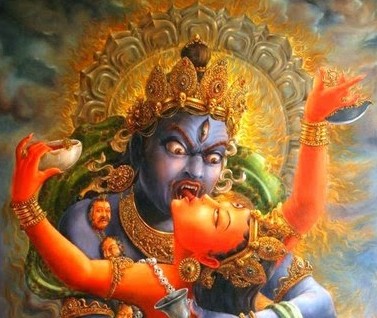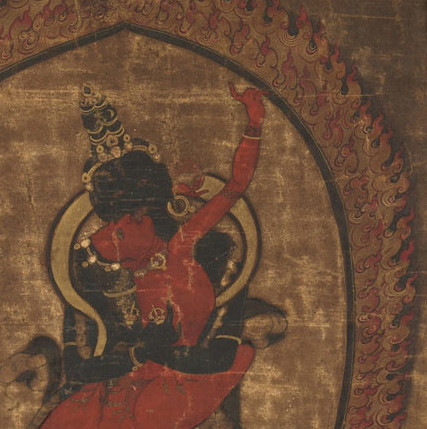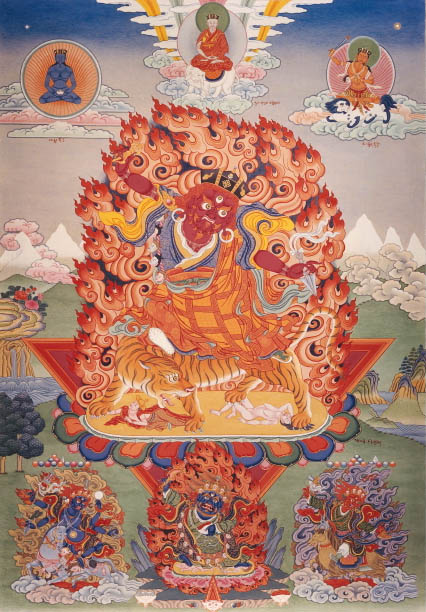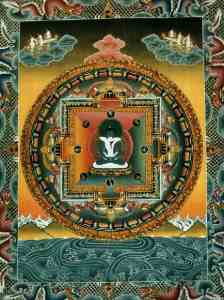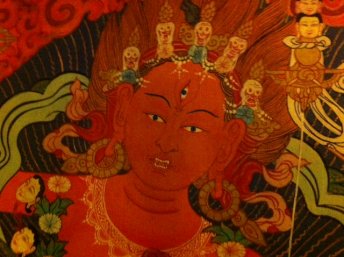Vajrayoginī Intensive
This monthly occurring Vajrayoginī Intensive is designed to not only rejuvenate but also to go deeper into our Vajrayoginī practice. Every Vajrayoginī intensive will include a talk given by either a resident teacher or a guest teacher. The Intensive (suggested: $ 25) is open to sādhakas who have received the Vajrayoginī abhiṣheka. Bring your liturgy and practice implements.
Chakrasaṃvara Intensive
This monthly occurring Chakrasaṃvara Intensive is designed to not only rejuvenate but also to go deeper into our Chakrasaṃvara practice. The Intensive (suggested: $ 20) is open to sādhakas who have received the Chakrasaṃvara abhiṣheka. Bring your liturgy and practice implements.
Chakrasaṃvara feast
Chakrasaṃvara feast Monthly Chakrasaṃvara feast practice, open to sādhakas who have received the Chakrasaṃvara abhiṣheka. Bring your liturgy and practice implements. $5 for participants contributing food to the pot-luck; $10 for participants who don’t.
Sojong
Sojong (Poṣhadha): The Meaning of Poṣhadha In Indian Hindu societies, members of the community regularly observe rites for renewing their connection with virtue. The days of the new and full moons are regarded as holy and set aside for purification of non-virtue and re-establishment of virtue. Those days, and the purification rites performed on those [...]
Sādhana of Mahāmudrā
The purpose of the sādhana: “[The Sādhana’s] purpose was to bring together the two great traditions of the Vajrayāna, as well as to exorcise the materialism which seemed to pervade spiritual disciplines in the modern world. The message that I had received from my supplication was that one must try to expose spiritual materialism and [...]
5–6pm Bardo Thötrol reading
The back cover of Francesca Fremantle and Trungpa Rinpoche's book "The Tibetan Book of the Dead – The Great Liberation through Hearing in the Bardo" states: The Bardo Thötröl is a Tibetan Buddhist scripture of the Nyingma or old tradition. It concerns the nature of the mind and its projections—beautiful or terrible, peaceful or wrathful—which [...]
9am–5pm Shamatha-Vipashyanā Mahāmudrā Intensive & talk
Join us for a full day of practice and investigation! Brief description: Shamatha-Vipashyanā Mahamudrā is one of the three main tracks of KCCL and will therefore be scheduled on a monthly basis. Each SVMI has its own theme and will be introduced by a senior resident teacher or a guest teacher. This months talk will [...]
5–6pm Bardo Thötrol
The back cover of Francesca Fremantle and Trungpa Rinpoche's book "The Tibetan Book of the Dead – The Great Liberation through Hearing in the Bardo" states: The Bardo Thötröl is a Tibetan Buddhist scripture of the Nyingma or old tradition. It concerns the nature of the mind and its projections—beautiful or terrible, peaceful or wrathful—which [...]
5–6pm Bardo Thötröl
The back cover of Francesca Fremantle and Trungpa Rinpoche's book "The Tibetan Book of the Dead – The Great Liberation through Hearing in the Bardo" states: The Bardo Thötröl is a Tibetan Buddhist scripture of the Nyingma or old tradition. It concerns the nature of the mind and its projections—beautiful or terrible, peaceful or wrathful—which [...]
3–8pm Vajrayoginī feast
Monthly Vajrayoginī feast practice, open to sādhakas who have received the Vajrayoginī abhiṣheka. Bring your liturgy and practice implements. $5 for participants contributing food to the pot-luck; $10 for participants who don’t.
5–6pm Bardo Thötröl
The back cover of Francesca Fremantle and Trungpa Rinpoche's book "The Tibetan Book of the Dead – The Great Liberation through Hearing in the Bardo" states: The Bardo Thötröl is a Tibetan Buddhist scripture of the Nyingma or old tradition. It concerns the nature of the mind and its projections—beautiful or terrible, peaceful or wrathful—which [...]
5–6pm Bardo Thötröl
The back cover of Francesca Fremantle and Trungpa Rinpoche's book "The Tibetan Book of the Dead – The Great Liberation through Hearing in the Bardo" states: The Bardo Thötröl is a Tibetan Buddhist scripture of the Nyingma or old tradition. It concerns the nature of the mind and its projections—beautiful or terrible, peaceful or wrathful—which [...]

